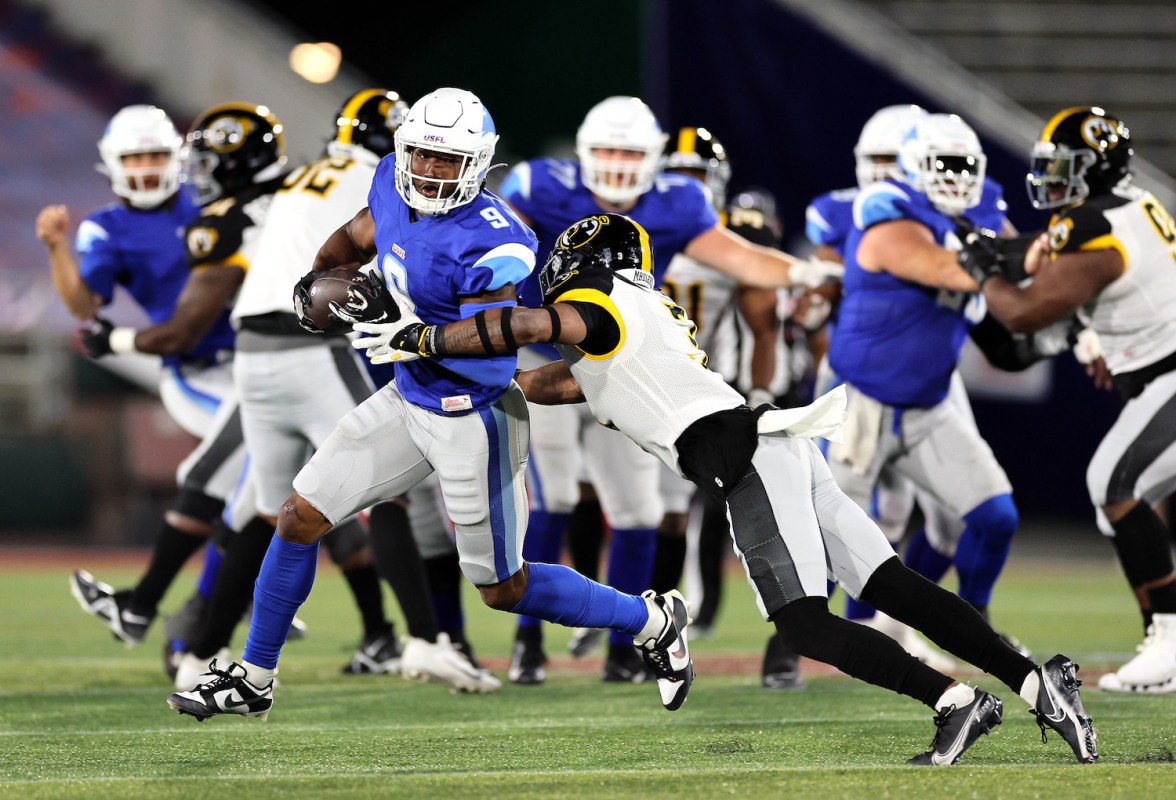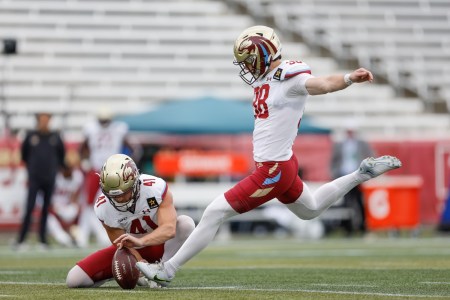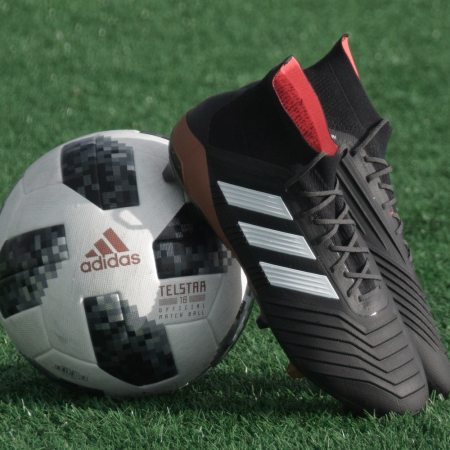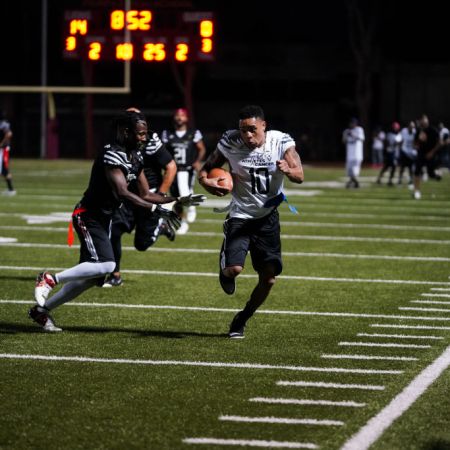The United States Football League (USFL), springtime rivals of the National Football League (NFL — in case you haven’t heard of it), saw its first slate of games for 2023 played this past weekend. The crowds were so sparse at USFL games that the league’s broadcast partner, Fox Sports, apparently pumped crowd noise into its viewing experience to help give the impression that anything happening on the field mattered at all.
In spite of the fact that this iteration of the USFL is embarking on its second season — an achievement in and of itself — it’s hard to imagine we’ll be seeing more meaningless games out of the league if such paltry attendance continues. However, its legacy could far outlive its actual existence, and not for the first time.
The USFL was around for three years in the mid-1980s, too, and the NFL stole adopted the two-point conversion rule as well as instant replay from the doomed league. And this version of the USFL once again features what, at least for now, seem like relative quirks within its rules.
“The USFL already [last year] implemented a running clock after incompletions in the first and third quarters to reduce game lengths,” wrote The Sporting News. “[T]eams can make two forward passes if the first is completed behind the line of scrimmage, and three-point conversions are possible after touchdowns.”
Kicker Jake Bates Is Heading to the Lions From the UFL
He had an outstanding UFL seasonThe NFL doesn’t even care about its integrity when it comes to league-wide conduct of its various personnel, as the Washington Post wrote a few years before Deshaun Watson was signed to his record-breaking contract after his highly publicized legal woes surrounding accusations of sexual misconduct. So it’s no surprise that the league also doesn’t care about its competition records’ history, as evidenced by the number of transformative rules changes the NFL has introduced in recent years, spurring pass-happy, video game-like offenses we’re seeing today. Why not go even further and institute a three-point conversion option, eh?
While they’re at it, the NFL can move kickoffs back to the 20-yard line, like the USFL did this year to increase the rate of returns, which are among the most exciting plays in the game. Granted, as The Ringer once pointed out, kickoff returns are also dangerous, but if the NFL won’t do away with them completely, in the meantime the league is stuck with a play — the kickoff touchback — that is a complete waste of time.
We have Major League Baseball working really hard to rein in lengthy game times with the widely discussed, very fast pitch clock, as well as other measures. Well, NFL games run longer than MLB games did prior to this season by nine minutes. The USFL just sped up its games by keeping clocks running after incomplete passes during all four quarters, except when there’s five minutes remaining in the second and fourth. Overall scoring would probably go down in the NFL if the league took on that rule, but the running game clock could help the league in the long term, as it tries to appeal to future generations with shrunken attention spans.
The USFL also allows a team that fumbles the ball before the goal line only to see it bounce through the end zone to retain possession at the original spot of the fumble. “That way there isn’t a chance to advance with a fumble but teams aren’t incongruently punished for that fumble,” wrote The Sporting News.
In the NFL, a fumble through the end zone results in a touchback for the other team, which the publication pointed out is irksome to fans. “What is it about the end zone that makes it unique?” The Sporting News added. “Why can players fumble out of bounds on other parts of the field [and retain possession]?”
It makes no sense! Then again, the NFL can’t even make sense of its own catch rule, which is pretty foundational to game play execution — especially, again, in this era of passing specialization. But even though its fans might leave games scratching their heads over what appeared to be dropped passes deciding games, at least the NFL has people showing up in the first place.
Whether you’re looking to get into shape, or just get out of a funk, The Charge has got you covered. Sign up for our new wellness newsletter today.


















